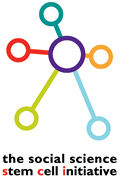Human Embryonic Stem cell Research (hESR) in East Asia: an Institutional Approach to Bioethical Reorientation
Abstract
The bioethics of hESR has led to controversies, not only in the West, but also in Asian countries. After the 2001 US moratorium on the public funding of hESR, however, various Asian countries jumped into the 'bioethical vacuum', claiming that Asian countries do not suffer from Western religious scruples about using human embryos in research. Nevertheless, controversies around the 'donation' of oocytes, the trade and barter of embryos, stem cell research trials, and the upheavals around human embryonic cloning and xeno-transplantation in Asia have attracted global media attention.
As international guidelines are being adopted into diverging economic, political and socio-cultural contexts in Asia , the question arises on what basis these guidelines are adopted to national and regional contexts, whom they are formulated by, how they are implemented, and by what authority. Diverging economic circumstances may lead policy-makers to introduce lenient research regulation, while patients that lack access to healthcare may be tempted to co-operate in research under pressure. The various legal and regulatory set-ups adopted by governments, private enterprises and hospitals in Asia may lead to various regulatory practices and the sanctions on violation may differ starkly according to location and political context.
This social-science approach to the institutional ramification of hESR in the People's Republic of China and Japan focuses on the following aspects:
a) Transnational: Bioethical decisions made in one country affect those made in others. This research therefore explores the connections between those decisions;
b) Organisational: Mapping of co-operation networks (government, private companies, venture capital, WHO, jointventures, universities);
c) Bioethical: Overview of bioethics guidelines used by governments, medical associations, private companies and their impact on research;
d) Discursive: the registration of the multiple discussions relevant to the bioethics of hESR. elements:
- A country analysis: population, healthcare system, economic situation, etc.
- Web studies of discussions on hESR and inventory of companies advertising with stem cell therapies;
- Study of guidelines published by governments and associations;
- Interviews with those who work/ make use of IVF clinics/ stem cell research labs;
- Interviews with regulators and bioethics committees, members of NGOs, social movements;
- Debate-seminars, a new approach to public debate and data collection.
The research presented in this Fellowship covers the creation of a new teaching course, organisation of debates and two conferences (of which one is set), engagement with stakeholders in hESR, and the development of a new method of social-science research: debate seminars. Debate seminars make use of the various views of public debate, the structure of focus point discussion, the engagement of interviews and the dynamics of actor initiative. At the same time they are a rich source of data useful in discourse analysis, and comparative research.
This comparative approach sheds light on discussions relevant to the regulation of hESR in two national contexts. It shows how variously coloured governments (democratic, socialist, autocratic), universities and companies formulate their bioethical views in relation to various interests and illuminates how they are ignored, interpreted or skewed in an institutional contexts. It explores the formulations of bioethical guidelines, the way they function under different political and economic regimes, and how hESR is justified internationally and at home. These insights are crucial to researchers who want to keep their trade respectable, both at home and abroad. In other words, this research explores the internal and external faces and practices of bioethics in action.
Contacts
Outputs
